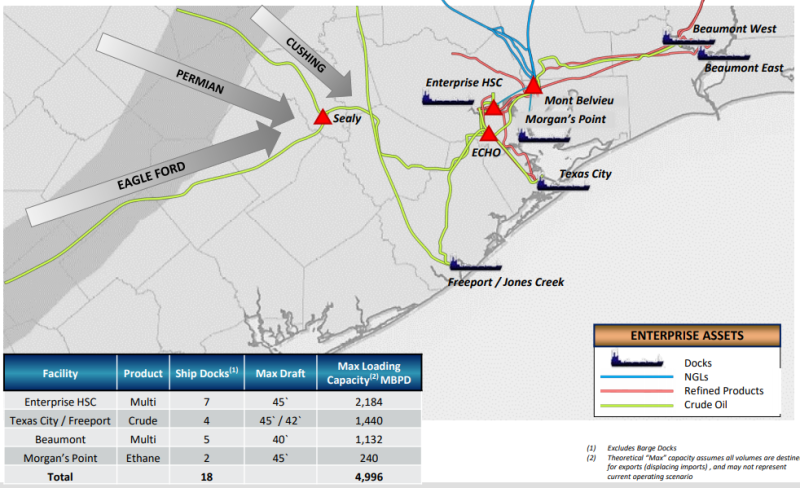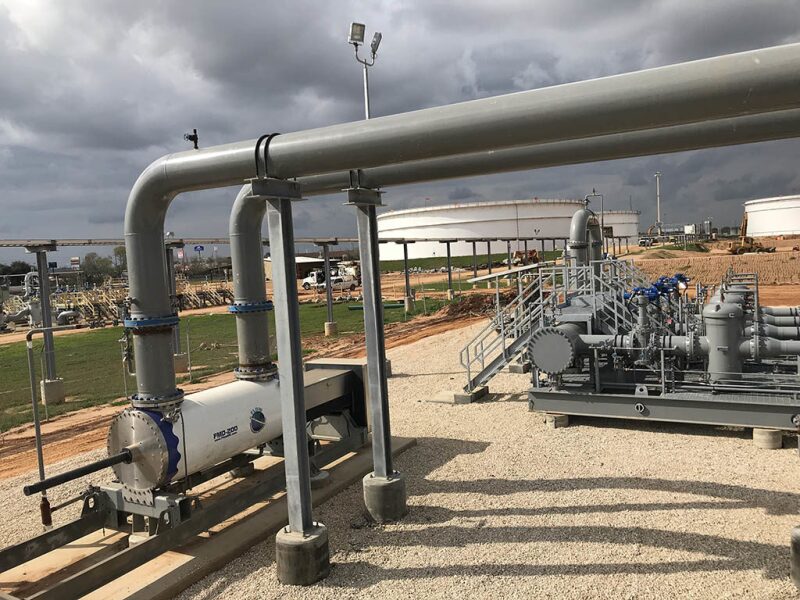Enterprise Products Partners’ (EPP) announcement yesterday that it is planning to develop an offshore crude oil export terminal off the Texas Gulf Coast holds promise of moving more US crude to international markets.
A recent report from the US Energy Information Administration found exports are constrained by shallow inland ports and the inability to accommodate VLCCs.
The EPP terminal would be capable of fully loading VLCCs, which have capacities of approximately 2 million bbl and provide the most efficient and cost-effective solution to export crude oil to the largest international markets in Asia and Europe.
EPP has started front-end engineering and design and preparing applications for regulatory permitting. Based on initial designs, the project could include approximately 80 miles of 42-in. diameter pipeline to an offshore terminal capable of loading and exporting crude oil at approximately 85,000 bbl per hour.
Today, the company is completing the second partial loading of a VLCC tanker at its jointly owned Seaway marine terminal in Texas City. The Eagle Victoria is loading approximately 1.1 million bbl of crude oil at the facility.
“On the heels of our second successful loading of a VLCC at the Texas City terminal, we are now planning to expand our capabilities to load crude oil faster and more cost-efficiently without the need for lightering vessels,” said AJ “Jim” Teague, CEO of EPP’s general partner. “Given the long-term outlook for growing supplies of US crude oil production, increasing global demand requiring supertankers, and the future limitations of Gulf Coast port and lightering capacities, we are confident this project will be embraced and supported by both domestic and international customers. In addition to our best in class reliability, Enterprise’s crude oil supply aggregation capabilities of over 4 million B/D, including from the Permian, Cushing, Eagle Ford, and numerous third-party connections, provide unmatched diversification, supply, and quality optionality for international markets.
“Capital and infrastructure to support our project would be solely provided by private capital and would not be reliant nor contingent upon state or federal government agency financial support or infrastructure development. We believe this would enable us to deliver this project in a timely manner once permits are granted and the project is underwritten,” Teague said.
A final investment decision will be subject to receiving the requisite state and federal permits and customer demand.

Enterprise began service on its Midland-to-Sealy crude oil pipeline in April, moving over 500,000 B/D. The 416-mile, 24 in. pipeline originates in Midland, Texas, and connects to the company’s Houston distribution network and ECHO storage terminal. This system carries the growing Permian crude production to refining markets along the Gulf Coast and international markets through the company’s export terminals.


